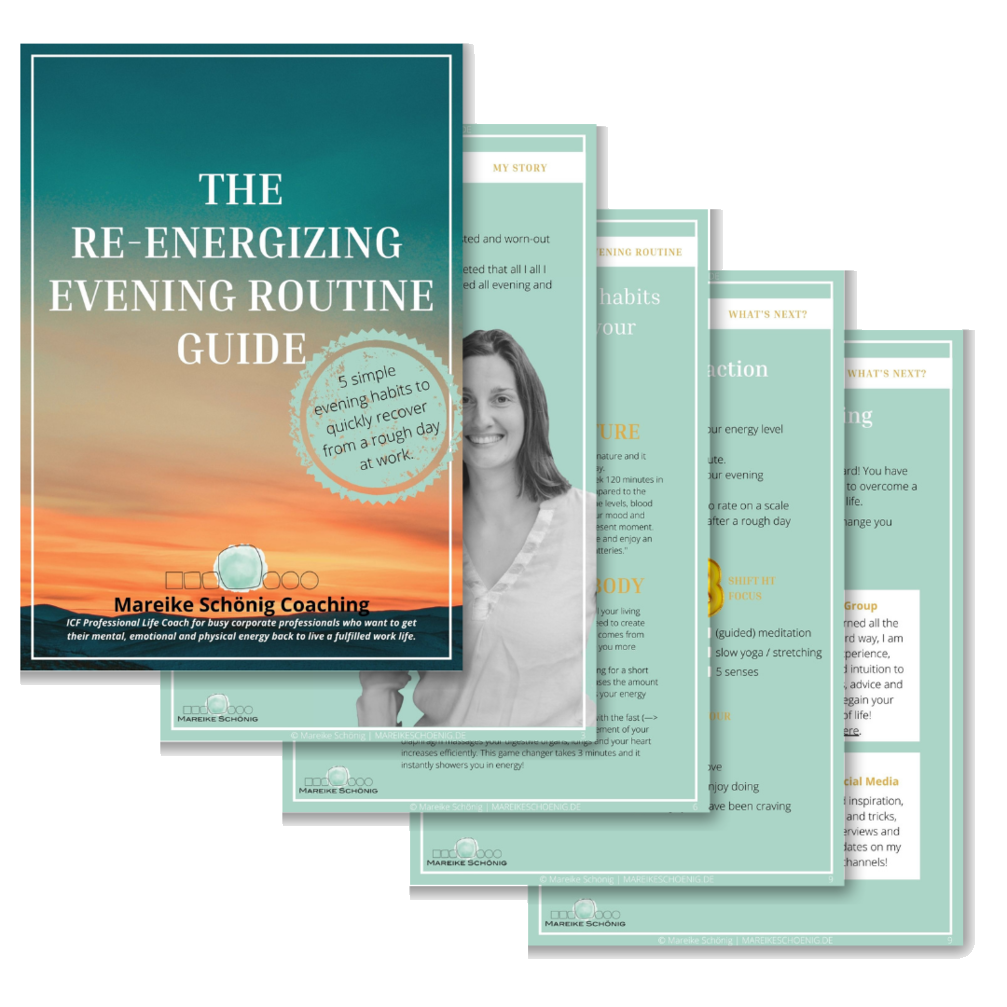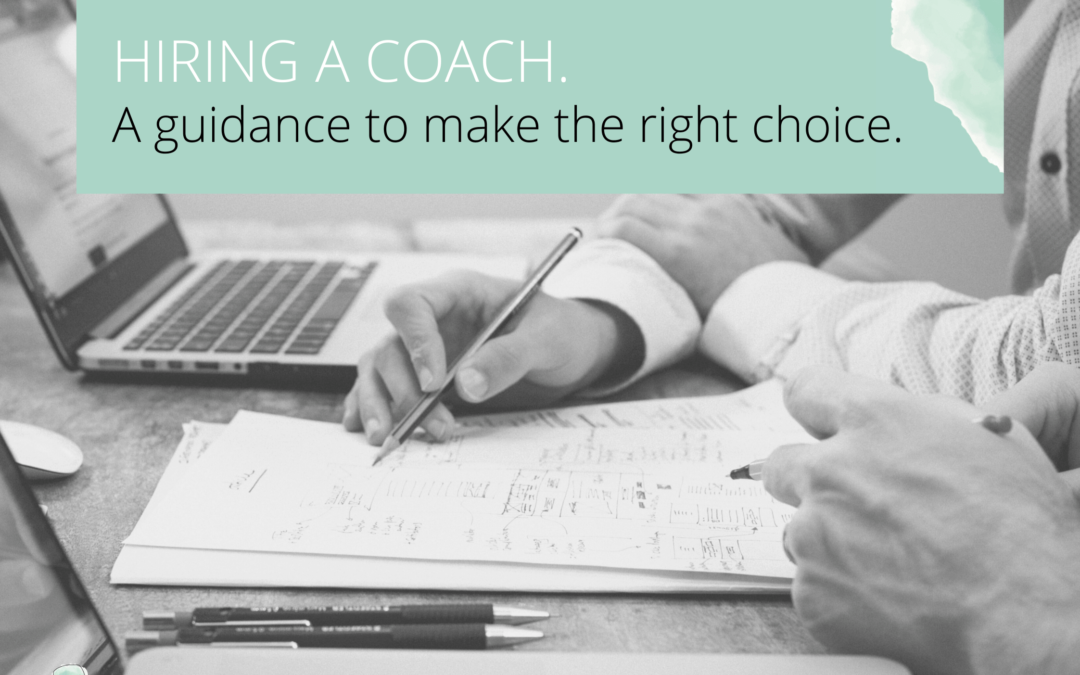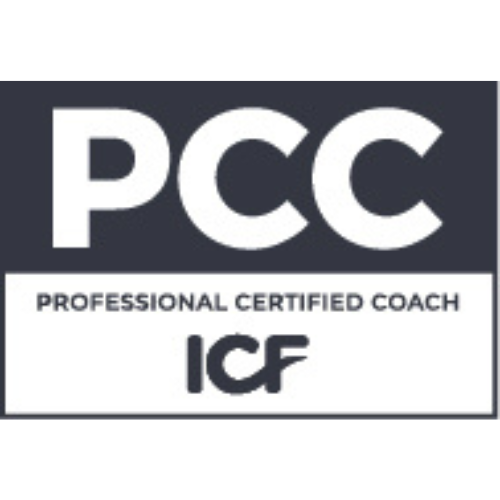It can feel challenging to find the perfect coach for our needs and goals among the numerous offers out there.
The world is literally swamped with coaches.
We need to prep ourselves with the knowledge of what to look for when choosing a coach and refrain from hiring the one with the most pleasant and catching marketing promises.
This article is intended to help find the right coach companion for our individual needs and goals, whom we know and feel that our investments made are made well and whom we see actual results surfacing when working with him/her.
It sheds light on aspects to be considered before hiring a coach and how to navigate safely through the confusing and overwhelming market.
Let’s begin with….
1. Business or Life Coach
Whether to pick a Business or a Life Coach for our journey depends on the matter of our coaching subject.
When it’s a more private context, we might want to look for a Life Coach and when it’s a more professional context, we might want to find a Business Coach.
Often our coaching subjects overlap from private to professional or vice versa, however a great coach knows how to handle these situations and is able to remain focused on our individual coaching journey outcome.
These are some questions to reflect upon when considering a potential coach:
>>> Is our coaching subject more likely to be categorized in a private or in a professional context?
>>> In what context are the coach’s competencies located?
>>> For what context would we recommend the coach to a close friend?
2. Transparency of the coaching process
A lack of transparency is an issue we see with many coaches as they simply focus on the mysterious and magical part of their coaching offering. It often leaves us not knowing what to expect from our purchase.
Ideally a coach maximizes the transparency about what exactly happens throughout a coaching process and explains what is needed in an understandable way. We should be given the opportunity to fully understand what has been shared with us before we make a choice on a purchase.
These are some questions to reflect upon when considering a potential coach:
>>> Is the coach explaining the coaching procedure sufficiently?
>>> Is the coach providing transparency without being asked for it?
>>> Do we have the feeling that something is being kept hidden?
>>> Were we given enough time to place all of our questions?
3. Trust in the coach
When shopping at a farmer’s market, we are often invited to try bits of fruits or vegetables before actually buying them. This isn’t possible with coaching.
Desired end results of a coaching journey cannot be guaranteed at the point of purchase. Not being able to experience the “end product” of what we purchase, requires us to build trust towards the coach.
There are many aspects that help to build trust:
Transparency in in the coaching process, the coach’s competencies, and the coach’s authenticity are all aspects that build trust.
Clients might want to have a look at the coach’s website or social media channels to get a feeling of whom they are dealing with.
A free first trial discovery session to get to know the coach better is a helpful opportunity to see if it builds trust.
These are some questions to reflect upon when considering a potential coach:
>>> Is the coach matching our wishes?
>>> Is the coach actively listening?
>>> Do we feel we obtain trust or is trust requested?
>>> Do we sense a desire to verify provided details?
>>> Do we feel the provided information is trustworthy?
>>> Do we tend to trust the offer or do we progressively develop more insecurity?
>>> Would we recommend the coach and his/her offer to a close friend?
4. Coaching subject & service agreement
A coaching subject contains two parts.
The first part is our desired achievements.
The second part is the coach’s aim to offer a professional, successful and qualified coaching service to us.
The coach has to demonstrate brilliant communication skills to follow our explanations and descriptions of our wants, wishes, desires, goals and dreams to align them with the coach’s service.
These are some questions to reflect upon when considering a potential coach:
>>> Has our coaching subject been discussed enough and is it integrated in the contract?
>>> Has a timely manner on the coaching journey been agreed on?
>>> Is the coaching service agreement cancelable at any time?
>>> Has enough time been allowed to settle subject and service agreement?
5. Agreement on goals
Coaching is a service that is a reflective dialogue between the client and the coach.
One way to make the coaching journey tangible is by setting goals. The definition of goals, the achievement and verification of a goal, are essential components in a professional coaching service.
Most of all, goals are the evaluation of whether the coaching journey has been helpful to the client or not.
These are some questions to reflect upon when considering a potential coach:
>>> Has the coaching goal, the verification and if needed the re-adjustment of goals been agreed on?
>>> Are the coaching goals truly our own goals?
>>> On a scale from 1 to 10, how precise are those goals defined?
>>> Have those goals been achieved during the coaching process? If not, has the coach talked about it with you?
6. Romantic intimacy in a coaching relationship
Work relationships in a psychological environment usually come with a deep closeness between the client and the coach. Often coaches are aware of our personal facts and along with openness and familiarity it further intensifies the deepness of our relationship.
Sometimes sympathy or even the desire for a romantic relationship might occur. If that is recognized and identified by us and the coach, the respective clarification can be brought along.
It’s inappropriate for a coach to use romance intimacy to entice us to buy a coaching service. In order to avoid romantic intimacy throughout the coaching relationship requires boundaries.
These are some questions to reflect upon when considering a potential coach:
>>> Do we see signs of romantic aspects in the coaching relationship?
>>> Are social, verbal or non-verbal activities suggested or expressed that make us feel inappropriate?
>>> Do we feel the strengthened urge to remain at a distance?
>>> Are the coaching sessions happening in an appropriate environment?
7. The client decides
A great coach keeps all power entirely with the client while the coach remains neutral.
A coach might come up with feasible solutions to a problem, but they should always remain suggestions.
The coaching relationship is not based on a teacher – pupil relationship. A coach acts as a reflection peer who allows us to find our own solutions and our own paths towards our ideal life scenario.
The great aim of coaching is to enable us to choose for ourselves.
These are some questions to reflect upon when considering a potential coach:
>>> Is the coach trying to pursue or advise us in doing something?
>>> Is the coach trying to urge us to act in a certain direction?
>>> Is the coach accepting our choices easily?
8. Qualification
Unfortunately both professional and serious coaches mix well with doubtful providers. Black sheeps create media attention with negative examples and confuse many people on their search for a coach. Many countries do not hold an agreement on the qualifications and the professional training needed for coaches as they do for other professions.
One way to separate the wheat from the chaff is to rely on standardized qualification. The ICF (International Coaching Federation) is the biggest federation certifying coaches in the world. They hold ethical guidelines, define gold standards and core competencies for highly qualified coaches.
All their verification checks aim to minimize our risk of hiring the black sheep of the coaches out there.
We might want to spend some time researching the following:
>>> The ICF (International Coaching Federation) lists all accredited and certified coaches, who comply with their training and education requirements. https://coachfederation.org/find-a-coach/
9. Client’s commitment
Coaches can try as hard as they want but, if we don’t feel entirely committed to change and do the necessary work involved, the coaching relationship will likely turn out to be unsatisfying and unsuccessful for both.
We need to be committed to invest time and effort to willingly make the desired changes in our life become a reality.
Before we commit ourselves to a coach and a coaching subject, a goal or a dream, consider the following:
>>> Are we committing from a “should” or from a “could”? We often find ourselves spending much time during our days in the ‘shoulds’. If the coaching journey doesn’t excite us deep inside and if we feel like we will be doing it mostly for any other reason than ourselves, maybe we shouldn’t commit to a coach or a coaching journey just yet.
>>> Is the right time to commit now? Our days are packed and everything is at a priority. If we feel like our commitment can wait another while or at all, maybe it’s not the right time to commit to a coaching journey yet.
>>> Does coaching serve our purpose? Sometimes we struggle to commit to something because very deep inside of us, if we are truly honest, we are not feeling fulfilled. If we feel coaching doesn’t serve our dreams, goals and ultimately our fulfilled feeling, then we need to consider not investing our time, money and energy by committing to coaching.
Disclaimer:
Everything above was put together to my best knowledge.
I do not guarantee your results and improvements when working with a Life Coach.
My content is based on this article of the Coaching Magazine:
https://www.coaching-magazin.de/philosophie-ethik/coach-auswahl?fbclid=IwAR0EdsyTcyr1jaJQXgfKoydXzEA0Xiq_4t_j2SJQVebFZGWJJ1ynL61LYX4
RE-ENERGIZING EVENING ROUTINE GUIDE
5 SIMPLE EVENING HABITS
TO RECOVER QUICKLY
FROM A ROUGH DAY AT WORK
It might sound tempting to put some deep-fried food in the microwave, open a beer and watch a couple of episode of the newest Netflix series to rewind after a long day, but these action won’t actually help recharge your empty batteries.
An re-energizing evening routine is essential to make it through exhausting and busy work weeks with enough energy to truly enjoy your free time after work.
DOWNLOAD IT FOR 0€!

Mareike Schönig
ICF-certified JOY OF WORKING Coach
Naturopath for Psychotherapy
EMDR Therapist
coaching@mareikeschoenig.de
Social Media
Join the
LOVE YOUR WORK LIFE AGAIN!
LinkedIn group now!
Coaching, self-coaching or counseling does not replace psychotherapy. Mareike Schönig Coaching reserves the right to decline requests and reference to medical doctors.
Impressum | Terms and Conditions | Privacy Policy | Disclaimer | Cookie Policy | Copyright
© 2021 Mareike Schönig. All rights reserved.



